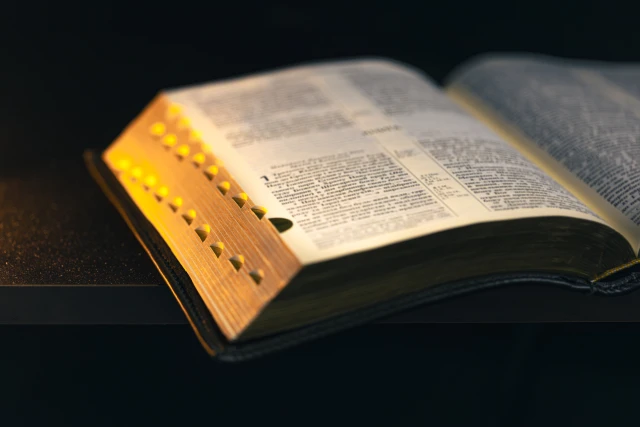Justice, covenant, and the cross: A biblical response to the episode "Palestinian Evangelicals and Christian Zionism"
A Palestinian Christian Response to Rev. Munther Isaac & Dr. Jack Sara

Introduction
In a recent conversation, Rev. Munther Isaac and Dr. Jack Sara offered a passionate critique of Christian Zionism, urging the Church—especially in the West—to reconsider its theological alignment with modern Israel.
Speaking from a place of real pain and injustice experienced by Palestinians, their message rightly calls attention to suffering and the Church’s ethical responsibility. They highlight the human cost of conflict—especially for Palestinian Christians—who often feel abandoned by the global Church. This moral appeal must not be dismissed; it rightly challenges believers to embody Christ’s compassion and justice within complex political realities.
Yet, the theological framework they propose lacks balance and fidelity to the full counsel of Scripture. This article offers a biblical response: one that affirms the call to justice and peace, while also upholding the enduring nature of God’s covenant with the Jewish people. It seeks to correct theological missteps without dismissing real human suffering.
Is Christ Found Only in Gaza?
Rev. Isaac’s poignant assertion that “Christ is born in the rubble of Gaza” reflects a deep theology of incarnation and solidarity. Indeed, Christ is near to the oppressed and broken-hearted (Psalm 34:18). Yet this imagery, while emotionally powerful, risks narrowing Christ’s identity to a political metaphor.
The same Christ (Messiah) who suffers with Gaza is also the risen King of Israel — born in Bethlehem (Micah 5:2; Luke 2:4–7), the city of David (1 Samuel 16), and rooted in the story of Ruth and Boaz (Ruth 1–4). This theological truth is anchored in historical fact: Jesus was not a political abstraction but a Jewish Messiah born into a real lineage with prophetic significance.
To locate Christ solely in the context of Palestinian suffering risks turning theology into national symbolism and distorting the universal scope of His lordship.
Israel and the Church: Not a Zero-Sum Theological Game
Throughout the episode, there is an implicit embracing of supersessionism—the idea that the Church has superseded or displaced Israel in God’s redemptive purposes. While some covenant theologians reject the term “replacement,” the outcome often leads to the same conclusion: that Israel no longer holds a distinct covenantal role.
But Scripture tells a different story. Paul declares in Romans 11:1:
“Did God reject His people? By no means!”
He continues, affirming both the existence of a believing remnant and a future restoration for “all Israel” (Romans 11:26). The Church is not a replacement of Israel but a grafting in (Romans 11:17–24). While the Gospel invites both Jew and Gentile into one body, it does not erase God’s covenantal faithfulness to the Jewish people.
The Abrahamic Covenant: Territorial and Eternal
God’s promise to Abraham includes both spiritual and territorial elements. In Genesis 12:3, God says:
“I will bless those who bless you, and whoever curses you I will curse; and all peoples on earth will be blessed through you.”
This covenant was later reaffirmed in Genesis 17:8:
“The whole land of Canaan... I will give as an everlasting possession to you and your descendants after you.”
While Galatians 3:16 points to Jesus as the seed through whom the promise is fulfilled, this spiritual fulfillment does not annul the land promise. To reduce the covenant to merely symbolic terms neglects the holistic nature of God’s promises — spiritual, historical, and territorial.
The Cross: True Justice and Mercy for a Broken World
True justice and mercy are revealed fully in the cross, where Christ died for us though we were undeserving. The cross is not merely a historical event but the ultimate act of God’s love and justice—bearing our sin and brokenness to reconcile humanity to God and to one another.
In a world filled with oppression and conflict, what we ultimately need is a justice rooted not in ideology or retaliation, but in sacrificial love. Only through Christ’s death and resurrection does reconciliation become possible, healing divisions and fulfilling God’s covenant in a way that embraces both Israel and the nations.
Prophetic Restoration: Not Mere Allegory
Scriptural prophecies about Israel’s restoration are often spiritualized, but many texts speak clearly of literal events. Ezekiel 36:24 says:
“For I will take you out of the nations; I will gather you from all the countries and bring you back into your own land.”
Similarly, Revelation 7:4–8 mentions 144,000 sealed from the twelve tribes of Israel—indicating a continued distinction for Israel in God’s eschatological plan. These texts are not merely symbolic; they affirm God’s enduring covenant and His sovereign orchestration of history.
Justice Demands Truth, Not Theological Revision
The call for justice is central to Scripture. Micah 6:8 reminds us:
“He has shown you, O mortal, what is good. And what does the Lord require of you? To act justly and to love mercy and to walk humbly with your God.”
And Jesus teaches in Matthew 5:9:
“Blessed are the peacemakers, for they will be called children of God.”
We must grieve Palestinian suffering and seek peace. But we must do so while holding to biblical truth, without denying Israel’s biblical identity or revising Scripture to serve political narratives.
Zionism According to Scripture: A Theological Perspective
The term Christian Zionism can be misunderstood, often associated with uncritical political support for modern Israel. But Zionism according to Scripture is theological, not nationalistic. It refers to God's enduring covenant with the Jewish people and the land—not based on human merit or politics, but on divine promise.
Jesus Himself affirmed Israel’s foundational role:
“Salvation is from the Jews” (John 4:22).
Biblical Zionism is not political colonialism. It is a recognition that God's redemptive purposes include the restoration of Israel, even as they extend to all nations.
It also refers to God's promise to enthrone His king in Zion.
“As for me, I have set my King on Zion, my holy hill.” (Psalm 2:6)
The Silent Witness of Messianic Jews
Curiously, the episode omits mention of Messianic Jews: Jewish believers in Jesus (Yeshua) who embody the very harmony of continuity and fulfillment described in Romans 11. Their existence challenges the notion that Jewish identity and faith in in the Messiah are incompatible.
They testify that God’s promises have not been revoked but fulfilled in the Messiah, and they serve as living witnesses to the hope of reconciliation within the Jewish people.
The Call to Peace: Covenantal and Just
True peace must be rooted in God’s truth and covenantal faithfulness. Any theology of reconciliation must uphold both the real suffering of Palestinians and the enduring promises made to Israel.
Holding both in tension requires humility, compassion, and a refusal to distort Scripture for the sake of ideology.
Conclusion
Rev. Munther Isaac and Dr. Jack Sara raise serious moral questions and rightly call the Church to greater empathy and justice. But their theological approach, leaning heavily on political critique, falls short of Scriptural fidelity.
Our response must be rooted in the Word of God — firm in conviction, compassionate in spirit, and faithful to His eternal plan for Israel and all the nations. Justice without truth becomes ideology; truth without mercy becomes cruelty. The Church must walk in both — grieving with those who suffer, honoring God's covenant with Israel, and proclaiming the Messiah as the only hope for reconciliation, including the reconciliation of Jews and Palestinians.

Abdel-massih (Servant of the Messiah) grew up in the West Bank in a Muslim family before finding Jesus and becoming a disciple. He has been a follower of Jesus for several years.
Abdel-massih is not his real name, as revealing his identity at this time would be dangerous to himself and his family.







